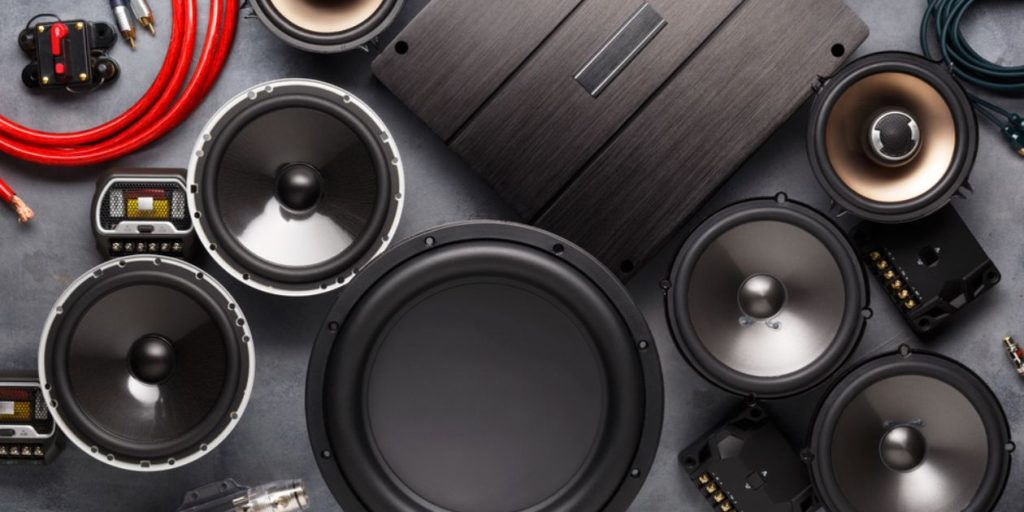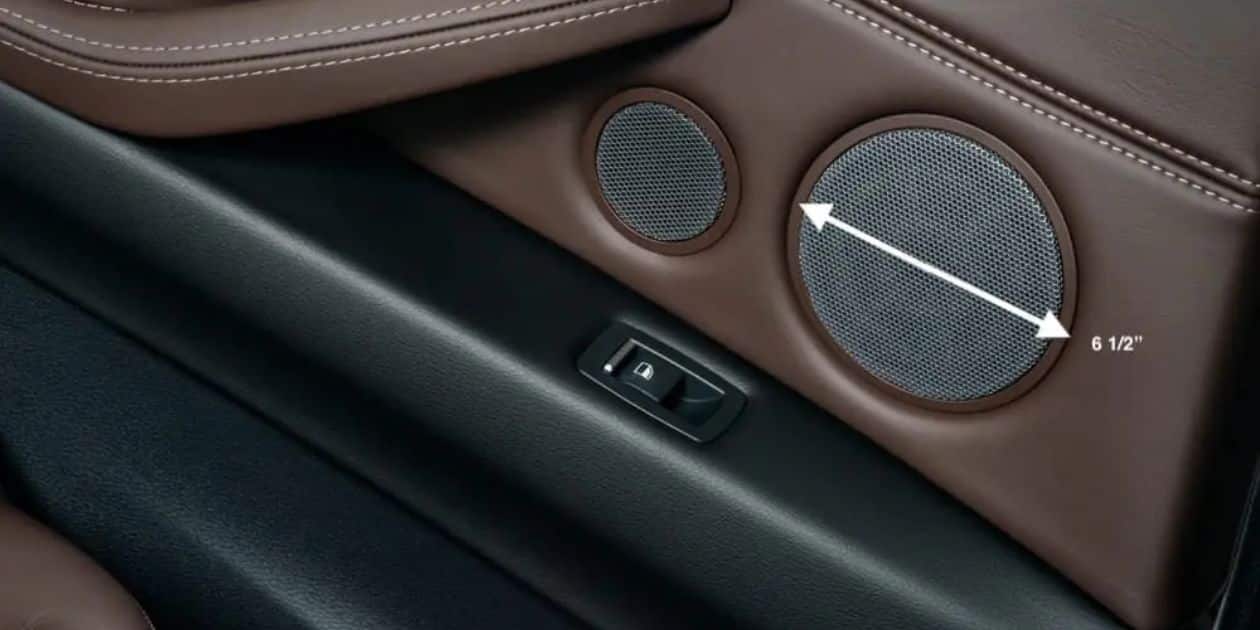Car speakers are an essential component of a car’s sound system. They are responsible for producing the audio output from your car’s stereo system.
But have you ever wondered what size speakers are in my car? To upgrade or replace your car’s speakers for better music, it’s important to know their size. To upgrade your car’s sound system, find out what size speakers your car has first. Your car’s speaker size affects the type of speakers you can install. This information is very important.
You can find out how big your car’s speakers are by checking the owner’s manual or looking online. First, find out the size of your car’s speakers. Then, you can search for a suitable replacement or upgraded speakers. Upgrading your car’s speakers can make your music sound better. It doesn’t matter if you want better bass or crisper sound. So, take the time to find out what size speakers are in your car. Start exploring your options to enhance your car’s sound system
Types of Car Speakers
Before we dive into determining the size of your car speakers, it is important to understand the different types of speakers available. There are two main types of car speakers: component speakers and full-range speakers.
Component speakers are a type of speaker system. It separates the different parts of the audio frequency spectrum into different speakers. Tweeters are responsible for handling the high frequencies. While woofers handle the low frequencies. Component speakers provide better sound quality and clarity than full-range speakers. But they can also be more expensive and need more installation work.
Full-range speakers are a more straightforward type of speaker system. They are designed to handle the entire audio frequency spectrum. They are generally less expensive and easier to install than component speakers. But they may provide a different level of sound quality and clarity.
How to Determine the Size of Your Car Speakers
Now that you have a basic understanding of the different types of car speakers. Let’s talk about how to determine the size of your car speakers. You can use a few different methods to figure out what size speakers are currently in your car.
One method is to consult your car’s owner’s manual. The manual should have information about the size and type of speakers. It came with your car from the factory.
Another method is to measure the size of the speakers. To do this, you must remove the speaker from the car. Once you have the speaker out of the car, you can measure the diameter of the speaker cone. This will give you an idea of the size of the speaker you need to replace.
You can search online if you don’t want to remove the speaker from your car. Car audio websites and forums have information on speaker sizes for different cars.
Common Speaker Sizes Found in Cars
What size speakers are in your car? There are several common speaker sizes found in cars, including:
6.5-inch speakers:
These are the most common speaker sizes found in cars and are typically used in the front and rear doors.
5.25-inch speakers:
These speakers are smaller than 6.5-inch speakers. They are typically used in the front or rear doors of smaller cars.
6×9-inch speakers:
These speakers are larger than 6.5-inch speakers. They are typically used in cars’ rear decks with a larger audio system.
4-inch speakers:
These speakers are smaller than 5.25-inch speakers. They are typically used in the front or rear doors of smaller cars.
8-inch speakers:
These speakers are larger than 6.5-inch speakers. These are typically used in the front or rear doors of larger cars.
It’s important to note that speaker sizes can vary depending on the make and model of the car. Some cars may have different size speakers in the front and rear. Ask the owner’s manual or an audio installer to clarify your car speaker size.
Factors to Consider When Choosing Speaker Size for Your Car

When choosing the speaker size for your car, several factors must be considered. Here are some of the most important ones:
Car makes and model:
Different car makes, and models have different speaker sizes and shapes. So it’s important to choose a speaker compatible with your car’s audio system.
Listening preferences:
Your personal listening preferences are also an important consideration. If you prefer bass-heavy music, choose a larger speaker with a bigger woofer. A smaller speaker may be enough if you prefer a more balanced sound.
Available space:
The available space in your car will also determine the size of the speaker you can choose. Measure the speaker opening in your car to ensure the new speaker fits.
Power handling:
Speakers come with different power-handling capabilities. A speaker can handle this maximum amount of power without getting damaged. Choose a speaker with a power handling rating that matches your car’s audio system.
Budget:
Speaker prices can vary, so choosing a speaker that fits your budget is important. Keep in mind that higher-priced speakers generally offer better sound quality and durability.
Installation:
The installation process can vary depending on the speaker size. Before deciding, it’s important to think about how hard the installation will be. You can hire a professional to install the new speakers if you feel uncomfortable doing it yourself.
Considering these factors, you can choose your car’s speaker size. Select one that fits your listening preferences, available space, and budget.
Benefits and Considerations
Upgrading your car’s speaker system can offer several benefits. But there are also some considerations to keep in mind. Upgrading your car’s speaker system has benefits and considerations. Here are some of the main ones to think about.
Benefits
Improved sound quality:
Upgrading your car’s speaker system can improve the sound quality of your music. New speakers can provide clearer, more accurate sound. It can help you hear details in the music you may not have heard before.
Increased volume:
Upgrading your car’s speaker system can also increase the volume of your music. It allows you to enjoy your music even in noisy environments.
Customization:
Upgrading your car’s speaker system can also allow you to customize your car’s audio system to your liking. You can choose speakers that provide the type of sound you prefer. You can also select speakers that fit your car’s aesthetics.
Resale value:
A high-quality speaker system can also increase the resale value of your car. This makes it a more attractive option for potential buyers.
Considerations:
Cost:
Upgrading your car’s speaker system can be expensive, especially if you choose high-end speakers. You’ll need to consider whether the benefits of the upgrade outweigh the cost.
Compatibility:
Not all speakers are compatible with all cars. So you’ll need to ensure that the speakers you choose are compatible with your car’s audio system.
Installation:
Installing new speakers can be difficult and time-consuming and may need some technical knowledge. You’ll need to consider whether you’re comfortable with DIY installation.
Warranty:
Some speaker manufacturers offer warranties on their products. It can protect you in case of defects or other issues. You’ll need to consider the warranty options when choosing speakers.
By weighing the benefits and considerations of upgrading your car’s speaker system. You can make an informed decision about whether an upgrade is right for you.
Troubleshooting Common Problems with Car Speakers and Size Issues
Troubleshooting Common Problems with Car Speakers and Size Issues:
No sound from the speakers:
If you’re not getting any sound from your car’s speakers, there could be several possible causes. The speaker wires may be disconnected or damaged. The amplifier may be faulty, or the speakers themselves may be damaged. Check the wiring and test the amplifier and speakers to find the problem.
Distorted or crackling sound:
Your car’s speakers may produce distorted or crackling sounds for various reasons. The speakers could break, wires may be loose, or the amplifier might be too strong. To find the problem, do three things: look at the wires, check the amplifier, and examine the speakers.
Speaker size issues:
Are you having difficulty finding speakers for your car’s audio system? Don’t worry; there are many solutions available. You may need to modify the speaker openings in your car to accommodate larger speakers. You may need to choose smaller speakers that fit the existing openings. You can choose a speaker made just for your car instead.
Uneven sound distribution:
If the sound from your car’s speakers is unevenly distributed, several possible causes could exist. The sound problem could be caused by wrong speaker placement, broken speakers, or a broken amplifier. Check the speaker placement, and test the amplifier and speakers. Now you inspect the speakers to identify the source of the problem.
Low volume:
If the volume from your car’s speakers is too low, there could be several possible causes. The sound system can have problems if the amplifier is strong, the speakers are broken, or the wiring needs to be fixed. Check the amplifier, and test the speakers. You can inspect the wiring connections to identify the source of the problem.
Conclusion
Determining the size of the speakers in your car can take time and effort. But it is an important task for anyone who wants to upgrade their car’s audio system. What size speakers are in your car? The size of the speakers can vary depending on the make and model of the car. It’s essential to consult the owner’s manual or consult with a professional to get accurate information.
If you don’t have access to the owner’s manual, you can measure the size of the existing speakers. You can also look for replacements that fit the same dimensions. Speaker sizes are measured in inches and refer to the diameter of the speaker cone. Remember this!
When you choose new speakers, consider how much power they can handle and their impedance. With the right size and specifications, you can improve the sound quality of your car. You can enhance your overall driving experience.






